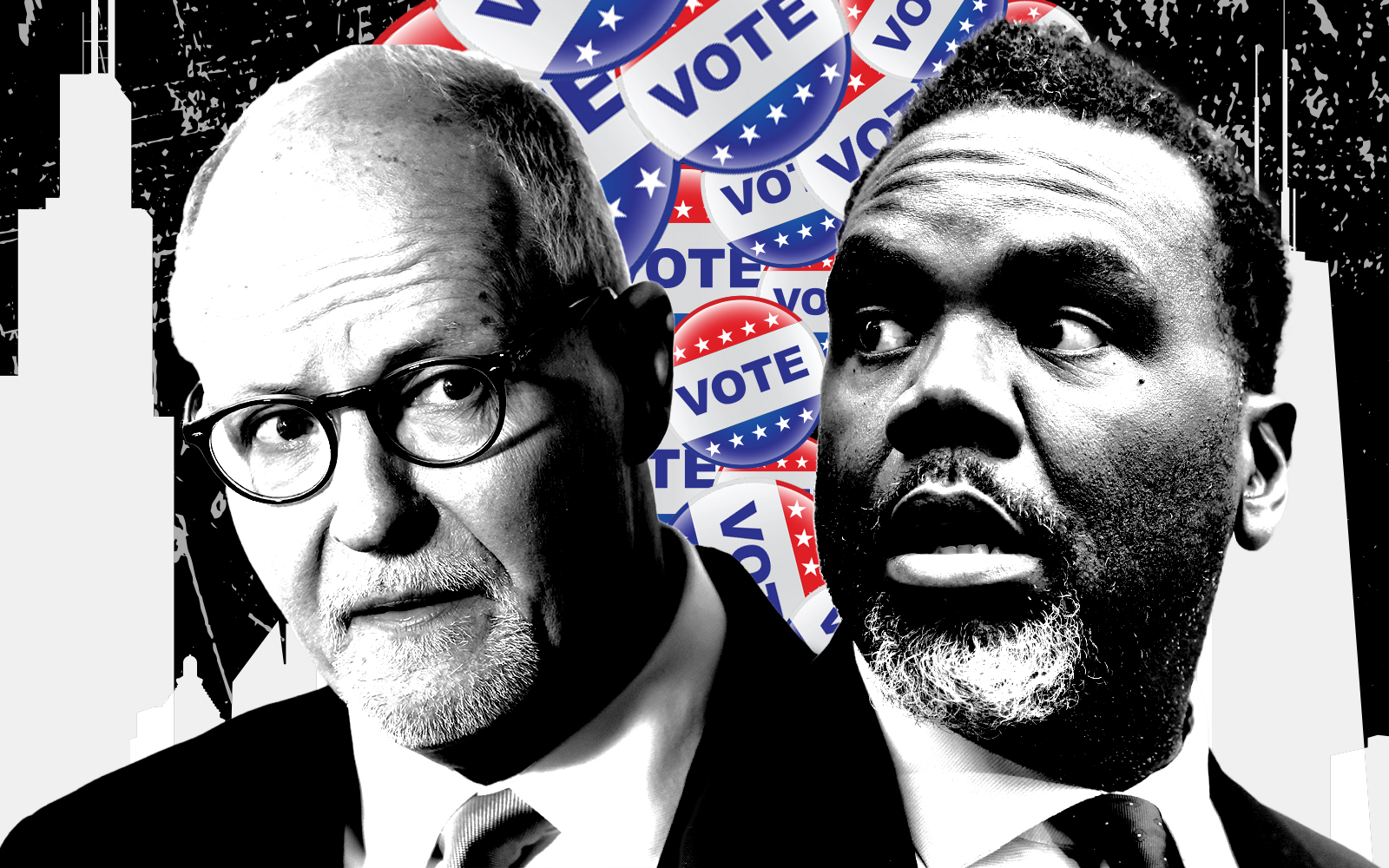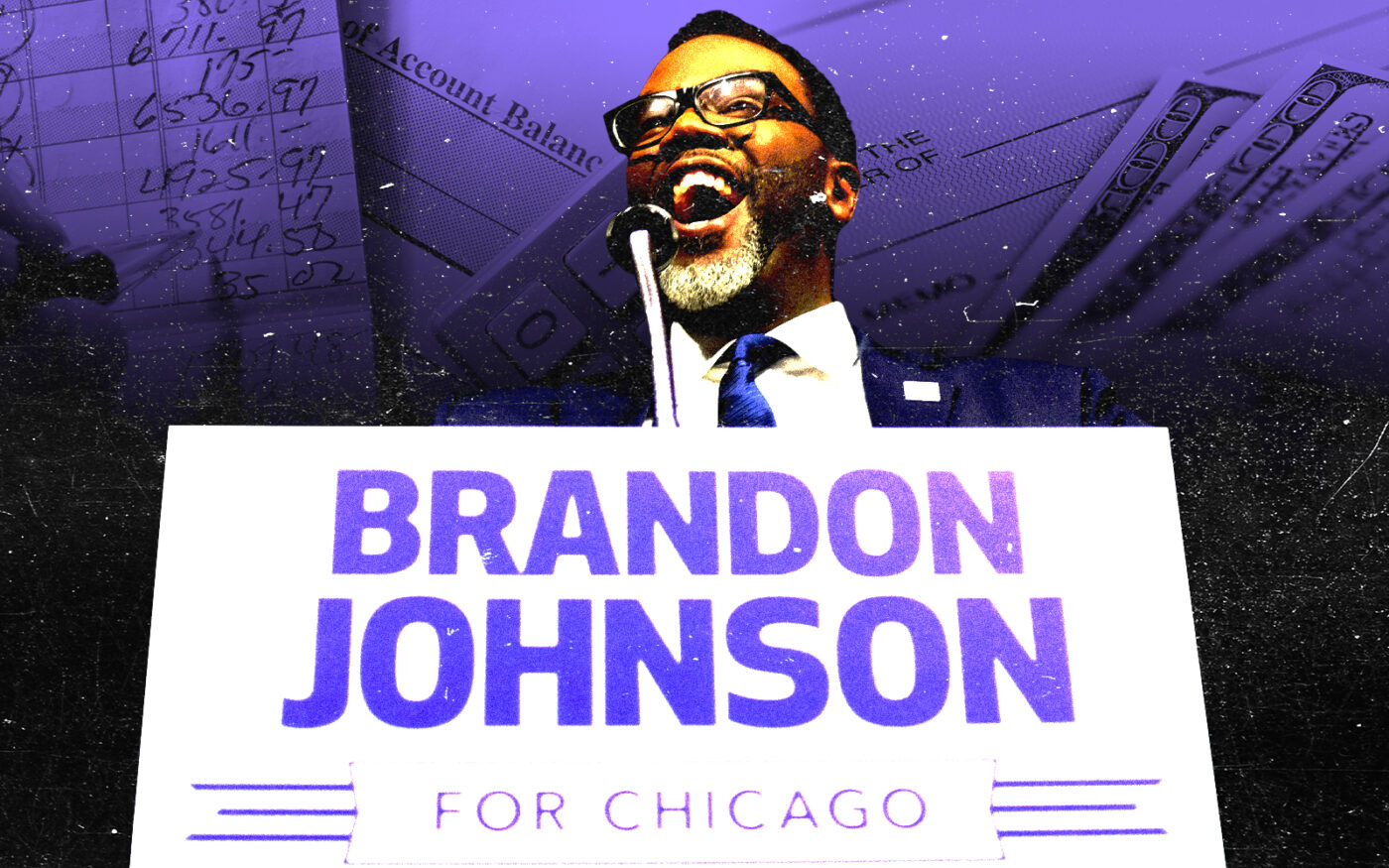UPDATED, May 15, 2023 1:15 p.m.
Brandon Johnson may not be the mayor real estate developers, brokers and investors wanted, yet he’s one they think they can tolerate and has shown some willingness to listen to business groups, multiple professionals said.
Chicago’s real estate community already cemented a few footholds with the new mayor, who was sworn into office Monday in Credit Union 1 Arena at the University of Illinois Chicago, even after the industry largely opposed the progressive politician in the run up to his election.
While Johnson so far hasn’t backed away from proposals that are downright frightening for the industry — namely more than tripling the city’s transfer tax on property sales of $1 million or more — insiders are confident they can meet somewhere in the middle of the road on big issues.
“We are very open to working with Brandon Johnson’s administration and we want to keep a close eye on what direction it goes in,” Illinois Realtors lobbyist Gideon Blustein said. “There was a lot of doom and gloom coming from certain folks, and I don’t think we ever had that sort of position.”
Conversations between Johnson and big real estate players, along with appointments to his transition team, have given some professionals hope for a seat at the table in policy decisions with the new mayor.
In his inauguration speech, Johnson made it clear that affordable housing is top of mind as he takes office, along with downtown and neighborhood revitalization.
“Rent in Chicago continues to go up year after year after year, while the development of both affordable and market-rate housing stagnates,” he said. “Our downtown commercial corridors still bear the scars of the pandemic with higher vacancy rates and lower foot traffic, and of course our neighborhoods, particularly those on the South and West side, have still not tasted the fruits of the investments that they demand and deserve.”
Johnson signaled his commitment to his proposed real estate transfer tax hike on sales of $1 million or more to 2.65 percent of the sale price — which would be up from 0.75 percent — with the appointment of Julie Dworkin, the director of policy at Chicago’s Coalition for the Homeless, to the housing subcommittee of his transition team. The coalition is one of the main backers of the proposal, which has been dubbed “Bring Chicago Home” by its proponents.
“We can bring Chicago home,” Johnson said in his speech, likely alluding to the initiative.
But housing policy discussions won’t be totally one-sided, as Johnson also put on his team Chicagoland Apartment Associaton’s Michael Mini and David Reifman, the city’s former Planning and Development commissioner and now Chicago region president for locally headquartered development and construction giant Clayco.
“It will take the mayor-elect some time to build out his team, and my impressions are that he’s very smart and capable of articulating multiple complicated themes,” Clayco founder Bob Clark, who has already had multiple meetings with Johnson, told The Real Deal in an email.
Developer Sterling Bay, whose executives donated thousands to Vallas before the runoff, also scored a spot on Johnson’s transition team, with the firm’s director of diversity and strategic development Keiana Barrett named to the subcommittee on economic vitality and equity.
Sterling Bay CEO Andy Gloor joined other major industry peers in reconfiguring his stance on Johnson, saying he is confident the new mayor will help see the $6 billion Lincoln Yards megadevelopment to the finish line while blaming outgoing Mayor Lori Lightfoot for the project’s slow progress.
“I can’t say enough just of my initial meetings with Brandon and his team,” Gloor told Bloomberg last week. “I’m super encouraged that he understands the importance of these large developments for Chicago.”
Johnson seemed to signal that Gloor’s confidence was warranted in his address. “We’ll create a Chicago where the big development projects get done,” Johnson said.
Like Clark, Illinois Realtors leaders have also had early meetings with Johnson. The organization developed a relationship with him during his time on the Cook County Board of Commissioners. The trade group, which stayed neutral in the race, has observed that “he’s very open about where he stands on certain topics,” Blustein said.
It’s clear Johnson is committed to pushing for the transfer tax, a proposal the trade group believes will increase the cost of housing, Blustein said, but at least both sides are in agreement on affordable housing access being a top issue.
“We might differ in how to get there, but we want to start from that place where we agree,” Blustein said.
Read more



